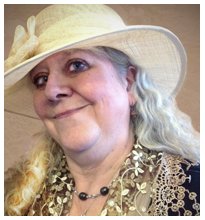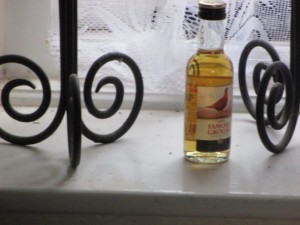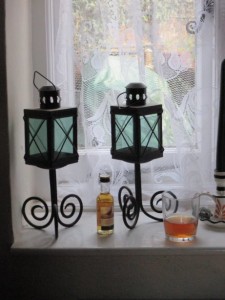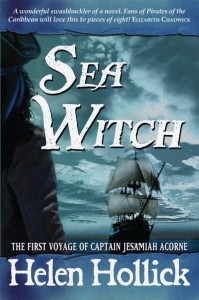 Relevant History welcomes Helen Hollick, who lives on a thirteen-acre farm in North Devon, England. Born in North-East London, Helen started writing pony stories as a teenager, moved onto science fiction and fantasy, and then discovered historical fiction. Published in the UK with her Arthurian Trilogy, and the era of 1066, she was selected for publication by Sourcebooks Inc in the US, and became a USA Today best seller with Forever Queen. She also writes the “Sea Witch Voyages” series, nautical pirate-based fantasy adventures. As a supporter of Independent Authors she is Managing Editor for the Historical Novel Society Indie Reviews, and inaugurated the HNS Indie Award. To learn more about Helen’s books, check out her web site and blog, and follow her on Facebook and Twitter.
Relevant History welcomes Helen Hollick, who lives on a thirteen-acre farm in North Devon, England. Born in North-East London, Helen started writing pony stories as a teenager, moved onto science fiction and fantasy, and then discovered historical fiction. Published in the UK with her Arthurian Trilogy, and the era of 1066, she was selected for publication by Sourcebooks Inc in the US, and became a USA Today best seller with Forever Queen. She also writes the “Sea Witch Voyages” series, nautical pirate-based fantasy adventures. As a supporter of Independent Authors she is Managing Editor for the Historical Novel Society Indie Reviews, and inaugurated the HNS Indie Award. To learn more about Helen’s books, check out her web site and blog, and follow her on Facebook and Twitter.
*****
My forthcoming novel, the fifth ‘Sea Witch Voyage,’ On The Account, has my ex-pirate, Captain Jesamiah Acorne being offered an illegal sideline of smuggling…something. I was going to use brandy, but wanted something different. After some research I decided whisky would be the perfect solution.
So what is whiskey?
‘Whisky’ (‘whiskey’ in Ireland and US) comes from Gaelic Uisge beatha meaning ‘Water of Life.’ Uisge beatha became uisge, then ooshki and finally whisky.
 Modern whisky is made with barley: Scotch barley is dried over peat fires giving a distinct smoky taste, while Irish is dried in closed ovens where a lack of smoke makes a smoother taste. Scotch is usually distilled twice, Irish, three times. Both by today’s laws are required to mature for at least three years.
Modern whisky is made with barley: Scotch barley is dried over peat fires giving a distinct smoky taste, while Irish is dried in closed ovens where a lack of smoke makes a smoother taste. Scotch is usually distilled twice, Irish, three times. Both by today’s laws are required to mature for at least three years.
Irish whiskey was recorded in 1405, being distilled in the 12th century, the technique brought from the Mediterranean around 1000 A.D. Scotch whisky (just called ‘Scotch’ today) was made from malted barley with earliest records dating to 1494 in the Exchequer Rolls—the tax records of the day. (So I was quite safe for On The Account, set in 1719.)
In these early lists for Scotland it is recorded that ‘Eight bolls of malt’ went to ‘Friar John Cor at Lindores Abbey, Fife to make aqua vitae.’ This would have produced 1,500 bottles. A ‘boll’ is a measure of not more than six bushels—one bushel equivalent to 25.4 kilograms.
The quality and purity of the water used is an integral part of making a fine whisky today, but originally it was a way of using up rain-soaked barley. It is a highly potent spirit. By the 16th and 17th centuries the skill of production had greatly improved. Mostly, as with Friar John Cor, monks were responsible for spreading the distillation skills. Initially whisky was consumed for its medicinal uses, prescribed for good health, long life and the relief of colic and smallpox. Indeed, if I have a cold, hot water, honey, lemon and a dram (or two) often sees it off!
From Tudor times
The dissolution of the monasteries by Henry VIII contributed to the spread of distilleries as many of the monks had to find alternative uses for their skills—whisky and the knowledge of how to produce it spread.
Dated to 1618 there is a reference to ‘uiskie’ in the funeral account of a Highland laird, and a letter to the Earl of Mar from 1622 mentions the spirit. Written by Sir Duncan Campbell of Glenorchy, he reported that officers sent to Glenorchy had been given the best entertainment, for they ‘wantit not [for] wine nor aquavite.’
Aquavitae formed part of the rent paid for Highland farms and became an intrinsic part of life, appreciated during long winters, and providing an offered welcome to guests.
However, popularity attracted the attention of the Scottish Parliament. The first taxes were introduced in 1644, fixing the duty at 2/8d (13p) per pint, (the Scots pint being approximately one third of a gallon.) This, inevitably, resulted in a rise of distilling illicit whisky.
Part of the agreement of the Union between Scotland and England in 1707 was that English taxes would not be enforced north of the border, but in 1724 Parliament introduced a tax, which caused riots in Scotland, and distillers were driven further underground. Distillers and smugglers saw no reason to pay for making whisky, especially with such a lucrative and relatively easy market for selling it at a profit. These markets were taverns and big houses: agents were confiscating around 10,000 stills per annum. A lot of money was being made from non-collected taxes!
By 1780 there were eight legal distilleries and over four hundred illegal ones. Smugglers organised signalling systems to warn of approaching excise men. Smuggling whisky had become a standard practice for over 150 years. (Ideal for my pirate!) Every conceivable storage space was used to hide illicit liquor, including using coffins for transportation.
This eventually prompted the Duke of Gordon, on whose land some of the finest illicit whisky in Scotland was being distilled, to propose in the House of Lords that it should be made profitable to produce whisky legally. In 1823 the Excise Act eased the restrictions on licensed distilleries while making it harder for illegal stills to operate. It sanctioned the distilling of whisky in return for a licence fee of £10, and a set payment per gallon. Smuggling almost completely died out as it was no longer profitable. Many present-day distilleries occupy sites of original illicit stills.
American rye
In the Colonies, whisky (or whiskey) distilleries emerged with the rum business, an integral part of the slave trade. Dispatched by ship to Africa, rum was traded for slaves who were transported to the West Indies to grow sugar, to make molasses, to make more rum.
 Whisky appeared occasionally in Colonial taverns before the American Revolution, but approximately 250,000 Scotch/Irish settlers migrated to America in the fifty years before Independence in 1776. When the British blockade of American ports cut off the molasses trade, rum distillers produced whisky instead. Rye became an all-American drink, being made in America from American grain, unlike imported beverages, which were heavily taxed. Frontier farmers who had an excess of rye distilled whisky from the surplus. A bushel made approximately three gallons and was worth more as liquor than as corn.
Whisky appeared occasionally in Colonial taverns before the American Revolution, but approximately 250,000 Scotch/Irish settlers migrated to America in the fifty years before Independence in 1776. When the British blockade of American ports cut off the molasses trade, rum distillers produced whisky instead. Rye became an all-American drink, being made in America from American grain, unlike imported beverages, which were heavily taxed. Frontier farmers who had an excess of rye distilled whisky from the surplus. A bushel made approximately three gallons and was worth more as liquor than as corn.
In 1789 Virginian farmers began making whisky with corn instead of rye, making it distinctive by aging it. They had discovered that charring the inside of oak barrels gave a better flavour and a darker colour. By 1792, western Virginia became the State of Kentucky and in the 19th century, Kentucky Corn Whiskey began to be called Bourbon.
I think Captain Acorne can smuggle whisky to a Virginian Tavern or two with historical accuracy, although not safely if excise men or the British Navy get to hear of it.
Sources
http://www.scotch-whisky.org.uk/
http://www.scotchwhiskyexperience.co.uk/
http://www.visitscotland.com/about/food-drink/whisky/history
http://www.hedrinksawhiskeydrink.com/
http://www.history.org/foundation/journal/summer08/whiskey.cfm
http://www.history.org/foundation/journal/holiday07/drink.cfm
*****
 A big thanks to Helen Hollick. She’ll give away a trade paperback copy of any currently released title in her “Sea Witch Voyages” series to someone who contributes a comment on my blog this week. I’ll choose the winner from among those who comment by Friday at 6 p.m. ET. Delivery is available worldwide.
A big thanks to Helen Hollick. She’ll give away a trade paperback copy of any currently released title in her “Sea Witch Voyages” series to someone who contributes a comment on my blog this week. I’ll choose the winner from among those who comment by Friday at 6 p.m. ET. Delivery is available worldwide.
**********
Did you like what you read? Learn about downloads, discounts, and special offers from Relevant History authors and Suzanne Adair. Subscribe to Suzanne’s free newsletter.




